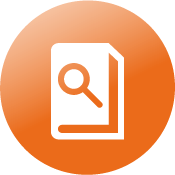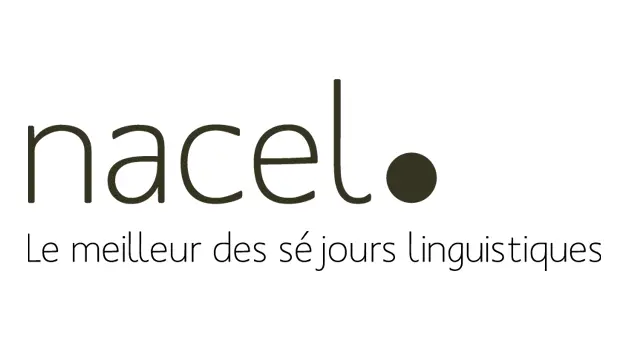
How to learn to read Arabic step by step
 Learn now
Learn now
Summary
of the page
>
Basic Arabic reading
>
Techniques and advice for learning to read Arabic
>
Develop your understanding of Arabic reading
>
The road to mastering Arabic reading
In our article, we're going to share with you the best tips for learning to read Arabic step by step. Whether you're a beginner or just want to improve your reading skills,
the techniques and tips we present will help you to decipher and understand the Arabic script.
Nous vous guiderons à travers ce processus d'apprentissage, en mettant l'accent sur la progression et la maîtrise progressive de l'alphabet arabe. Avec notre approche inspirante et soutenue, vous développerez une confiance
croissante dans votre capacité à lire et à comprendre cette langue fascinante. Prêt à commencer cette aventure passionnante ? Suivez-nous ! Voici les meilleures astuces pour réussir dans
learning Arabic
Basic Arabic reading
How reading in Arabic differs
Arabic has a unique feature that sets it apart from other languages: it is read from right to left. What's more, the Arabic alphabet is very different from the Latin alphabet we use in French.
It consists of 28 letters, whose shape changes according to their position in the word - beginning, middle or end.
Arabic is a continuous script language, meaning that most of the letters are linked together in words. This contrasts with the separate letters we use in French. In addition, Arabic does not use
capital letters. Finally, punctuation in Arabic can also be different, with signs that don't exist in French. Understanding these differences is the first step in learning to read in Arabic.
Why learn to read Arabic
Learning to read Arabic has many advantages. Firstly, it opens a window onto a rich and diverse culture and history. What's more, Arabic is the fifth most widely spoken language in the world, used by over
more than 300 million people in 22 countries. So learning to read Arabic can open up career opportunities in a variety of fields, including international trade, diplomacy, journalism and teaching.
Arabic is the language of the Koran, so to fully understand this religious text, a knowledge of Arabic reading is necessary. Finally, learning to read in Arabic can also stimulate your brain, because it
requires a different kind of thinking and concentration. So, whether for personal, professional or academic reasons, studying how to read Arabic can be a valuable and rewarding skill.
Techniques and advice for learning to read Arabic
Proven methods for learning to read
There are several tried and tested approaches to learning to read in Arabic. Firstly, it is advisable to start by learning the alphabet and the sounds associated with each letter. Next, active listening to the language
can help you better understand the nuances of pronunciation. Songs, films and television programmes in Arabic can be good tools for this.
Regular reading is also essential. Start with simple texts and gradually increase the level of difficulty. What's more, using a language-learning application or working with a tutor can be very beneficial for receiving feedback and improving your skills.
with a tutor can be very beneficial for receiving feedback and improving your skills. Finally, don't hesitate to take notes and create vocabulary cards to help you memorise words. With regular commitment
and constant effort, you'll see your Arabic reading skills gradually improve.
Tips for deciphering Arabic script
Deciphering Arabic script can seem daunting at first, but with a few tricks it becomes easier.
First, familiarise yourself with the different shapes that each letter can take depending on its position in the word. This will be essential if you are to identify the letters correctly when you read.
Secondly, practise recognising letters in different fonts and scripts. This will help you to read Arabic in different contexts.
Thirdly, take note of the diacritics, the little signs above or below the letters that change the pronunciation. Finally, don't hesitate to use a dictionary or translation application to help you when you come across words you don't understand.
help you when you come across words you don't understand. With practice and patience, you will develop a better understanding of Arabic writing and become more comfortable with reading.
The best apps for learning to read Arabic
Avec le progrès de la technologie, il existe aujourd'hui de nombreuses applications qui peuvent faciliter votre apprentissage de la lecture en arabe. Globe Speaker, par exemple, propose des leçons interactives pour vous aider à
learn the Arabic alphabet
et à améliorer votre lecture.
‘Arabic Alphabet’ also offers detailed lessons on each letter, with animations to show how they are written. ‘Mondly’ offers conversations in Arabic and reading exercises to improve your
comprehension. For a more immersive approach, ‘Rosetta Stone’ offers complete immersion in the language, encouraging learning by context.
Finally, ‘Arabic Reading Course’ is specifically designed to help you learn to read Arabic, with lessons on writing and pronunciation. These apps are all available on iOS and Android, and many offer
free features. Using these resources, you can practise reading Arabic wherever you are and at your own pace.
Develop your understanding of Arabic reading
How to boost your confidence in Arabic reading
Regular practice is the key to increasing your confidence in reading Arabic. The more you read, the more comfortable you'll become with the Arabic alphabet and word structure. Don't hesitate to read aloud to
get used to the sound of the language and improve your pronunciation.
It can also be useful to read different types of text - newspaper articles, books, recipes, etc. - to familiarise yourself with a wide range of vocabulary and contexts. - to familiarise yourself with a wide range of vocabulary and contexts. It's also important to
not to be afraid of making mistakes. It's by making mistakes and correcting them that you learn the most. Finally, remember to celebrate your progress, no matter how small.
Every word you decipher, every sentence you understand is a victory. With time and perseverance, your confidence in reading Arabic will continue to grow.
Adapting your reading skills for everyday life
Learning to read Arabic should not be limited to formal study sessions. It's essential to integrate this skill into your daily life to reinforce it. For example, you could try reading
signs or posters in Arabic as you walk around town.
If you're preparing an Arabic recipe, try to read it in Arabic rather than French. On social networks, follow Arabic accounts to expose yourself to the language. In addition, consider using mobile learning applications
that allow you to practise reading in Arabic in your spare time, such as when you're on the move or taking a break.
You can also try reading children's books in Arabic, which use simple language and are often accompanied by pictures to help understanding. By incorporating reading in Arabic into your daily routine
you can improve your skills in a more natural and less stressful way.
Measure your progress in Arabic reading
Assessing your progress is an essential part of learning to read in Arabic. A simple way of measuring your progress is to keep track of how many words you can read and understand. Create a vocabulary list
and regularly add to it new words that you have learnt. Make a note of the texts you can read. This will allow you to see how far you've come by going back to texts you found difficult before.
It may also be useful to take reading comprehension tests available on learning applications or specialist websites. Finally, don't hesitate to ask a tutor or language partner for feedback.
language partner. They will be able to give you an accurate assessment of your reading level in Arabic. Seeing your progress can be very motivating and encourage you to continue learning.
The road to mastering Arabic reading
Getting involved in the Arabic reading community
Getting involved in the Arabic reading community can greatly enrich your learning experience. You can join Arabic study groups or reading clubs, where you will have the opportunity to practise reading
and discuss various texts with other learners. Participating in online forums dedicated to learning Arabic can also be beneficial.
You'll find advice, resources and encouragement from other people who are also learning to read Arabic. In some cases, you might even find a language exchange partner with whom to practise
reading with.
Attending Arabic cultural events, such as literature festivals or poetry readings, can expose you to a wide variety of Arabic texts and inspire your learning. By becoming part of the
Arabic reading community, you can enrich your understanding of the language and its culture.
Continue to improve your Arabic reading skills
Learning to read Arabic is an ongoing journey. Even after you've mastered the language, there's always room to improve your skills. To do this, regularly read texts in Arabic
of different genres and levels of difficulty. Try to decipher newspaper articles, novels, poems or even academic texts in Arabic. In this way, you will continue to expand your vocabulary and improve your understanding of complex grammatical structures.
your understanding of complex grammatical structures.
In addition, don't hesitate to ask for feedback from native speakers or an Arabic teacher. They will be able to help you identify areas for improvement and correct your mistakes. Finally, keep yourself motivated by setting
clear learning objectives and measuring your progress regularly. With commitment and perseverance, you will continue to improve your Arabic reading skills.
The importance of perseverance in learning to read Arabic
Learning to read Arabic can seem a daunting challenge, especially at first. However, it's important not to be discouraged by the difficulties and to persevere. Every little bit of progress is a victory that
closer to your goal. If you encounter obstacles, look for creative solutions to overcome them. You may need to adjust your learning method, spend more time practising or ask a tutor for help.
Remember that learning is a process that takes time. Don't compare yourself to others, but measure your progress against yourself. Celebrate every new letter you learn, every word you decipher,
every text you understand. With patience and perseverance, you can succeed in reading Arabic and open a new window on the world.
Your questions
on learning Arabic
Can I learn Arabic on my own?
Which countries speak Arabic?
How can I learn Arabic at home?
How do you say hello in Arabic?
What's the best way to learn Arabic?
What kind of Arabic should I learn?
Language Club
The blog that tells you everything about languages


Language Club
The blog that tells you everything about languages


All languages to learn
Certification preparation courses available

Toeic
They learned a new language with Globe Speaker





Very good, fun platform.

Marc • 45 ans
Niveau A2 à B1 - Abonnement Premium





J'ai apprécié de travailler sur la plateforme Globe Speaker, autant de fois que je le voulais ou pouvais, ainsi qu'avec Maria pour la partie coaching.

Véronique • 41 ans
Niveau A2 à B2 - Abonnement Premium CPF





Complète et évolutive.

Louis • 65 ans
Niveau A1 à B1 - Abonnement Premium





Plateforme très pédagogique, et adaptée à tous les âges. J'ai vraiment eu l'impression d'apprendre.

Maria • 28 ans
Niveau A1 à B1 - Abonnement Premium





Ravie et très heureuse d'avoir pu atteindre les objectifs fixés. Une équipe attentive et bienveillante, qui donnent les moyens aux élèves de réussir.

Isabelle • 34 ans
Niveau A2 à B1 - Abonnement Premium





































